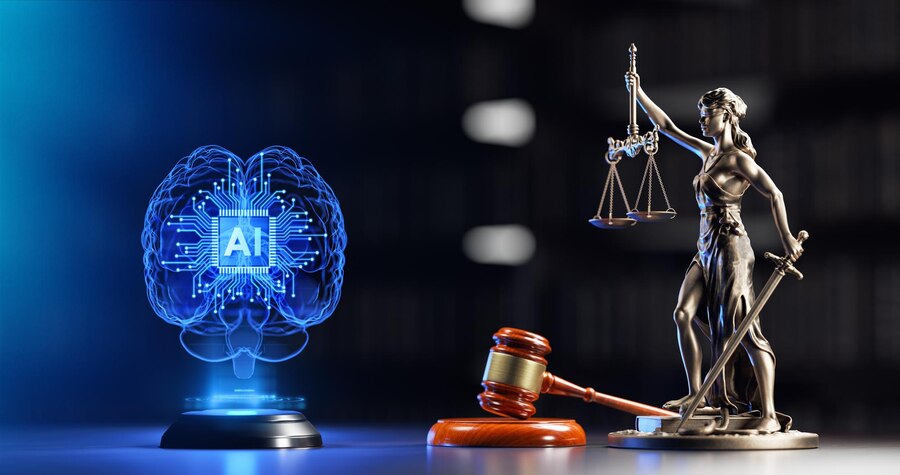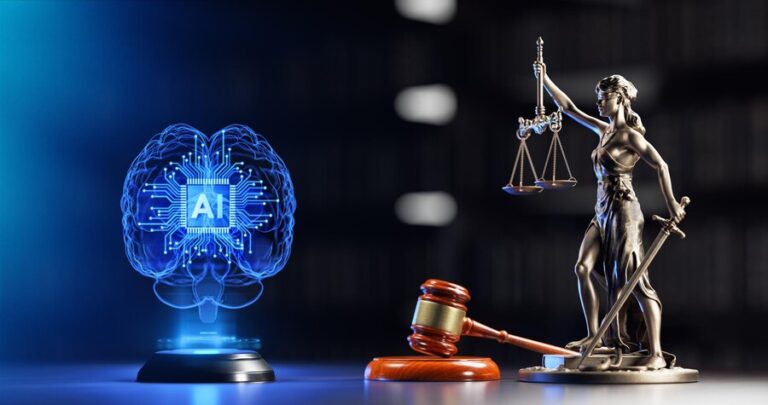The United Nations (UN) has taken a significant step toward addressing the complexities and challenges of artificial intelligence (AI) by releasing the final report from its AI advisory body. The report, unveiled on Thursday, contains seven crucial recommendations aimed at mitigating AI-related risks and filling existing gaps in governance. This effort is a response to the rapid development and deployment of AI technologies that have far-reaching implications for societies worldwide. Established last year, the UN’s 39-member advisory body was specifically tasked with exploring the international governance of AI and providing strategic guidance. These recommendations are slated for discussion at a major UN summit in September, which will bring together global leaders to deliberate on the best path forward for AI governance.

Key Recommendations: Establishing a Global AI Governance Framework
The advisory body’s primary recommendation calls for the establishment of a dedicated panel designed to serve as an authoritative source of impartial and reliable scientific knowledge about AI. This panel would play a crucial role in addressing information asymmetries that currently exist between AI developers—primarily research labs—and the broader global community. The goal is to ensure that accurate, up-to-date information about AI developments, risks, and impacts is available to all stakeholders, fostering a more informed and balanced dialogue on the future of AI.
Since the high-profile launch of Microsoft-backed OpenAI’s ChatGPT in 2022, the proliferation of AI tools has accelerated dramatically. This rapid growth has fueled concerns about the misuse of AI, particularly in the realms of misinformation, fake news, and copyright infringement. AI-generated content, which can convincingly mimic human communication, has raised ethical and legal questions about its potential to deceive or manipulate public perception. As AI technologies become more sophisticated, the need for robust governance mechanisms that can address these challenges has become increasingly urgent.
Global Disparities in AI Governance: A Comparative Analysis

Currently, the governance of AI varies significantly across different countries, with only a few having enacted comprehensive legislation to regulate its use. The European Union (EU) has emerged as a leader in AI regulation, having passed a comprehensive AI Act that sets out stringent requirements for transparency, accountability, and risk management. This legislation is designed to ensure that AI technologies are developed and deployed responsibly, with safeguards in place to protect individual rights and public interests.
In contrast, the United States has adopted a more laissez-faire approach, relying on voluntary compliance with ethical guidelines rather than imposing strict regulatory controls. While this approach has allowed for rapid innovation, it has also been criticized for its lack of enforceability and the potential for ethical lapses. Companies are encouraged to self-regulate, but without binding legal requirements, there is a risk that commercial interests may take precedence over public safety and ethical considerations.
China, on the other hand, has pursued a strategy that emphasizes social stability and state control. The Chinese government has implemented strict regulations designed to prevent AI technologies from disrupting social order or challenging state authority. This approach reflects China’s broader regulatory philosophy, which prioritizes state interests and control over market freedoms. While effective in maintaining oversight, China’s model raises questions about freedom of expression and the use of AI in surveillance and social governance.
International Response: The Need for a Unified Approach
The UN’s report highlights the fragmented nature of AI governance on the global stage. Countries have adopted diverse regulatory frameworks that reflect their unique political, social, and economic contexts. This lack of uniformity presents a significant challenge, as AI technologies often cross borders and have global impacts. To address this, the United States, along with about 60 other countries, endorsed a “blueprint for action” on September 10. This document outlines principles for the responsible use of AI in military applications, aiming to set a baseline for ethical standards in a sensitive area of AI development. However, the blueprint is not legally binding, and major AI player China did not endorse it, underscoring the geopolitical divides that complicate efforts toward cohesive international AI governance.
The UN has raised concerns that the current trajectory of AI development—dominated by a few powerful multinational corporations—could lead to a scenario where these technologies are imposed on societies without adequate public oversight or input. This concentration of power raises critical questions about accountability, equity, and the democratic control of technology. If left unchecked, the rapid deployment of AI could have profound implications for privacy, employment, and the broader social fabric, making effective governance all the more urgent.
Proposed Solutions: Enhancing Global Cooperation and Building Capacity

To bridge the gaps in current AI governance, the advisory body has put forward several proposals aimed at strengthening international cooperation and building capacity. One of the key initiatives is the creation of a new policy dialogue platform dedicated to AI governance. This platform would bring together diverse stakeholders, including representatives from governments, industry, academia, and civil society, to share insights and develop consensus on best practices for AI regulation. By facilitating open and inclusive dialogue, the platform aims to create a more harmonized approach to AI governance that reflects the needs and values of different regions.
Another critical recommendation is the establishment of an AI standards exchange. This proposed body would function as a hub for sharing regulatory frameworks, technical standards, and best practices among countries. By promoting the exchange of knowledge and expertise, the standards exchange would help reduce the risk of regulatory fragmentation, where divergent national rules create loopholes that undermine global AI safety and accountability.
The advisory body also highlights the need for a global AI capacity-building network. This network would focus on enhancing the governance capabilities of countries, particularly those in the Global South, that may lack the resources or technical expertise to effectively regulate AI. Through training programs, technical assistance, and resource-sharing initiatives, the network would empower these countries to develop robust AI policies and engage more effectively in global AI governance discussions. This inclusive approach aims to ensure that all nations, regardless of their economic standing, can participate in shaping the rules that govern AI.
The Call for a Global AI Fund and Data Framework
One of the most ambitious proposals in the report is the establishment of a global AI fund. This fund would be designed to address the gaps in capacity and collaboration that currently hinder effective AI governance. By providing financial resources to under-resourced countries and institutions, the fund aims to level the playing field and ensure that all nations have the means to engage with AI responsibly. The fund would support a wide range of activities, including research initiatives, public awareness campaigns, and the development of ethical AI technologies that prioritize human rights and social good.
In addition to financial support, the advisory body recommends the creation of a global AI data framework. This framework would establish common standards for data governance, focusing on issues such as data privacy, security, and consent. Given that data is the lifeblood of AI, ensuring that it is collected, used, and shared responsibly is critical to building public trust in AI systems. The framework would seek to mitigate some of the most pressing ethical concerns associated with AI, including bias, discrimination, and the misuse of personal information.
Balancing Innovation and Regulation: The Broader Implications of AI Governance

The UN’s recommendations come at a pivotal moment, as the world grapples with the dual challenges of harnessing AI’s potential while mitigating its risks. AI technologies hold immense promise for driving innovation, enhancing productivity, and solving complex global problems. However, they also pose significant risks, from job displacement and privacy violations to the erosion of democratic norms. The UN’s call for a balanced approach to AI governance reflects a growing recognition that while innovation should be encouraged, it must not come at the expense of fundamental rights and societal values.
Achieving this balance is particularly challenging given the pace of AI development. New AI applications are emerging at a rapid rate, often outstripping the capacity of regulators to respond. This dynamic environment calls for governance mechanisms that are not only robust but also adaptable, capable of evolving alongside technological advancements. The UN’s proposals emphasize the need for proactive, rather than reactive, governance strategies that anticipate future challenges and embed ethical considerations into the fabric of AI development.
The Role of International Institutions: Shaping the Future of AI Governance
International institutions like the UN have a crucial role to play in shaping the future of AI governance. By providing a forum for dialogue, fostering international cooperation, and setting norms and standards, these institutions can help bridge the gaps between national regulatory approaches and create a more cohesive global framework. The UN’s advisory body has underscored the importance of multilateralism in addressing AI-related challenges, recognizing that no single country can effectively govern AI on its own.
The advisory body’s call for a global AI governance framework reflects this vision of collective action. By bringing together diverse voices—from governments to tech companies and civil society organizations—the UN aims to foster a more inclusive and participatory approach to AI governance. This collaborative model seeks to ensure that AI technologies are developed and used in ways that reflect shared values, such as fairness, transparency, and respect for human rights.
Addressing Misinformation and Ethical Concerns: The Role of AI in Society
One of the most urgent issues raised in the UN’s report is the potential for AI to be used in ways that spread misinformation and undermine trust in information sources. The rise of AI-driven tools such as deepfakes and generative models has made it easier than ever to create realistic but false content, posing significant challenges for media integrity and public trust. This misuse of AI can have far-reaching consequences, from influencing elections to eroding public confidence in established institutions.
To combat the spread of misinformation, the advisory body has called for stronger regulatory and oversight mechanisms. Proposed measures include labeling AI-generated content to distinguish it from human-created material, enhancing digital literacy among the public, and holding platforms accountable for the content that circulates on their services. By addressing these ethical concerns, the UN aims to promote a healthier information ecosystem where AI is used to support truth and transparency rather than deceit.
The Path Forward: Implementing the UN’s Recommendations
The upcoming UN summit will provide an opportunity for world leaders to discuss and potentially adopt the recommendations outlined in the advisory body’s report. However, translating these recommendations into concrete action will require sustained effort and commitment from all stakeholders. The challenges are significant, particularly given the diverse political, economic, and cultural factors that shape national approaches to AI governance.
Nevertheless, the UN’s report offers a comprehensive roadmap for how the international community can work together to build a more equitable and sustainable AI future. By prioritizing transparency, accountability, and collaboration, the proposed measures aim to create a governance environment where the benefits of AI can be maximized while its risks are minimized.
Conclusion: The Future of AI Governance
The UN’s final report on AI governance marks a pivotal moment in the global effort to address the challenges and opportunities presented by artificial intelligence. The advisory body’s recommendations provide a blueprint for a more balanced and responsible approach to AI development, one that recognizes the need to protect public interests while fostering innovation. As AI continues to evolve, the need for robust, flexible, and inclusive governance frameworks will only become more pressing.
The UN’s call for a global AI governance framework, the establishment of a dedicated panel for scientific knowledge, and increased capacity-building efforts represent a proactive step towards managing AI’s complexities. By embracing a collaborative and multilateral approach, the world can harness the transformative potential of AI while safeguarding the principles of transparency, fairness, and human rights. Moving forward, it is imperative that nations work together to ensure that AI technologies are developed and deployed in ways that contribute to a just, equitable, and sustainable global society.














